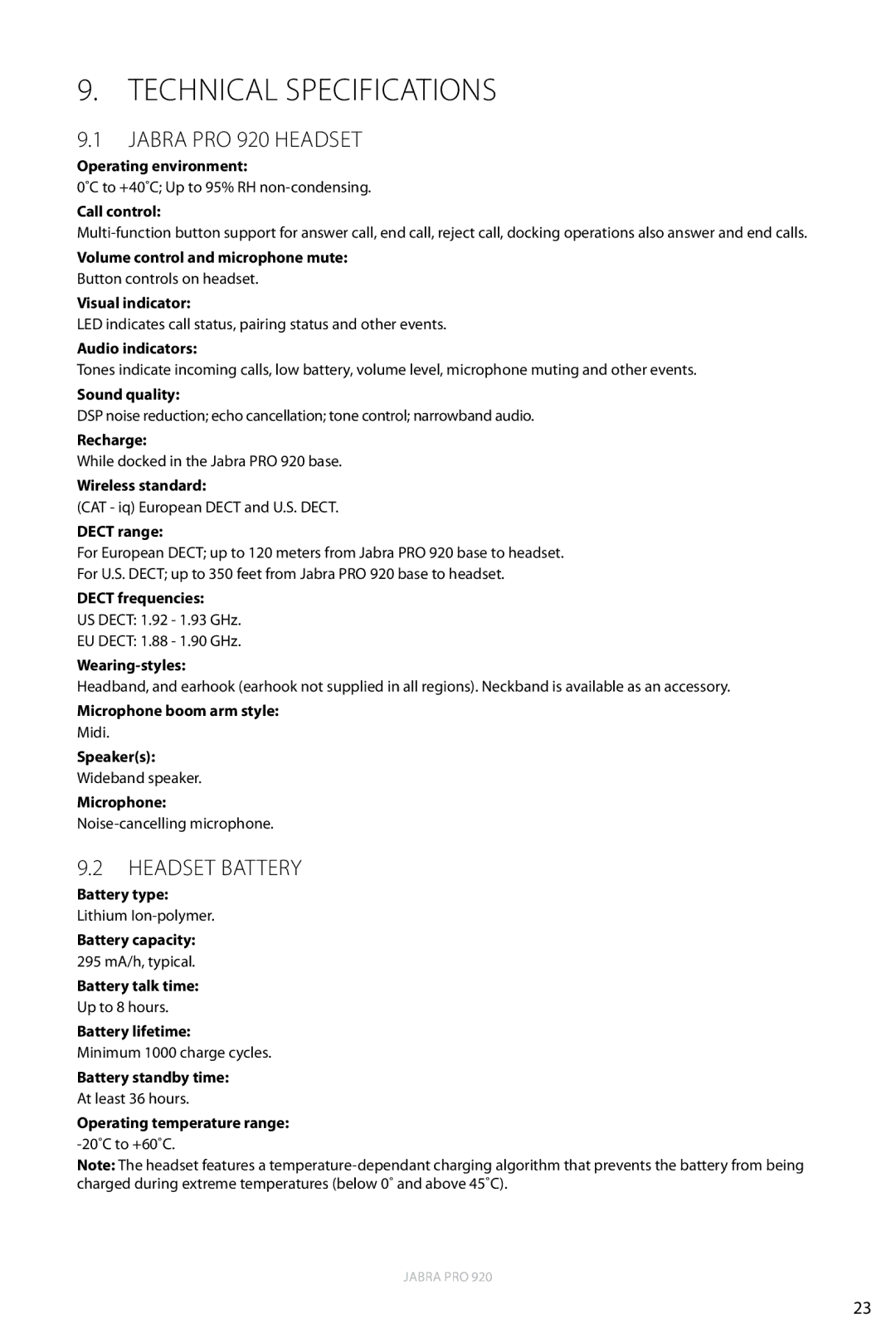9. Technical Specifications
9.1Jabra PRO 920 Headset
Operating environment:
0˚C to +40˚C; Up to 95% RH
Call control:
Volume control and microphone mute:
Button controls on headset.
Visual indicator:
LED indicates call status, pairing status and other events.
Audio indicators:
Tones indicate incoming calls, low battery, volume level, microphone muting and other events.
Sound quality:
DSP noise reduction; echo cancellation; tone control; narrowband audio.
Recharge:
While docked in the Jabra PRO 920 base.
Wireless standard:
(CAT - iq) European DECT and U.S. DECT.
DECT range:
For European DECT; up to 120 meters from Jabra PRO 920 base to headset.
For U.S. DECT; up to 350 feet from Jabra PRO 920 base to headset.
DECT frequencies:
US DECT: 1.92 - 1.93 GHz.
EU DECT: 1.88 - 1.90 GHz.
Wearing-styles:
Headband, and earhook (earhook not supplied in all regions). Neckband is available as an accessory.
Microphone boom arm style:
Midi.
Speaker(s):
Wideband speaker.
Microphone:
9.2Headset Battery
Battery type:
Lithium
Battery capacity:
295 mA/h, typical.
Battery talk time:
Up to 8 hours.
Battery lifetime:
Minimum 1000 charge cycles.
Battery standby time:
At least 36 hours.
Operating temperature range:
Note: The headset features a
Jabra PRO 920
english
23
